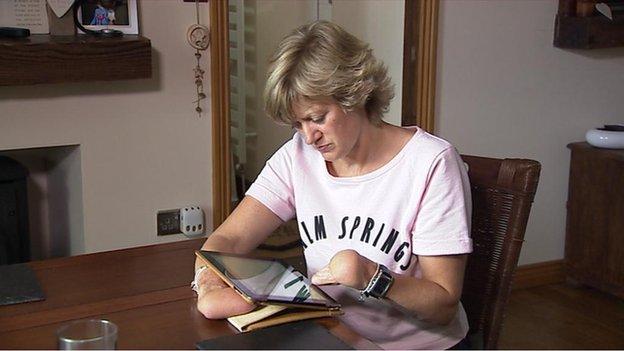Man's double hand transplant is 'space-age stuff'
- Published
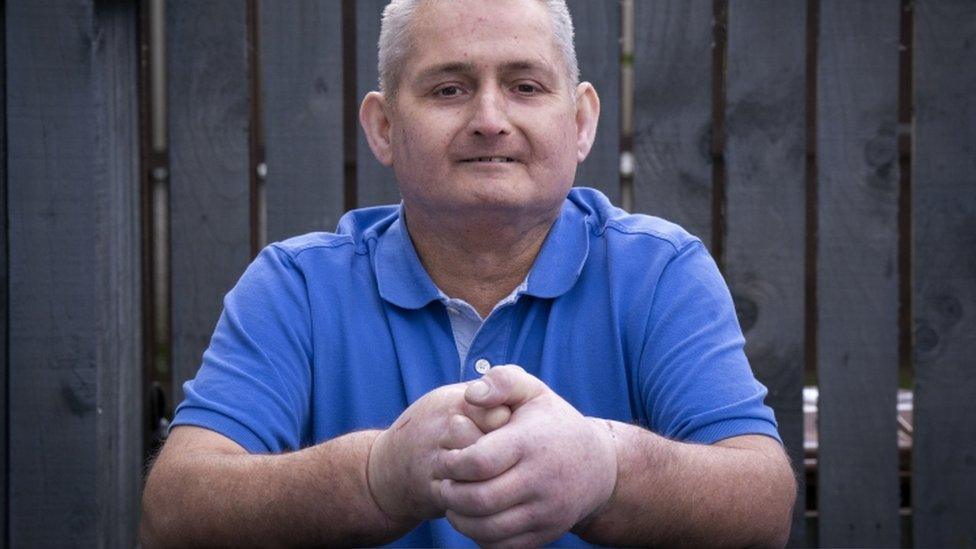
Steven Gallagher laughed when it was first suggested he could have a double hand transplant.
But five months on from pioneering surgery that could have cost him all use of his hands, he is now pain-free and enjoying "a new lease of life".
Steven, 48, developed an unusual rash on his cheeks and nose about 13 years ago, and pains in his right arm.
Doctors initially thought it was lupus, external and then carpal tunnel syndrome, external, and the father-of-three had an operation.
But when the pain returned in both arms, he was referred to a specialist who confirmed he had scleroderma, external, an autoimmune disease that causes scarring of the skin and internal organs.
The condition affected areas including his nose, mouth and hands. About seven years ago, his fingers started curling in until they were in a fist position. He was suffering "horrendous" pain.
"My hands started to close, it got to the point where it was basically two fists, my hands were unusable," he recalled. "I couldn't do a thing apart from lift things with two hands.
"I could not grab anything, it was a struggle to get dressed and things like that."
Steven, from Dreghorn in North Ayrshire, was forced to give up his work as a roof tiler.
He was referred to Professor Andrew Hart, a consultant plastic and hand surgeon based in Glasgow, who first raised the possibility of a double hand transplant.
"At the time I laughed and thought, that's space-age kind of things," he said.
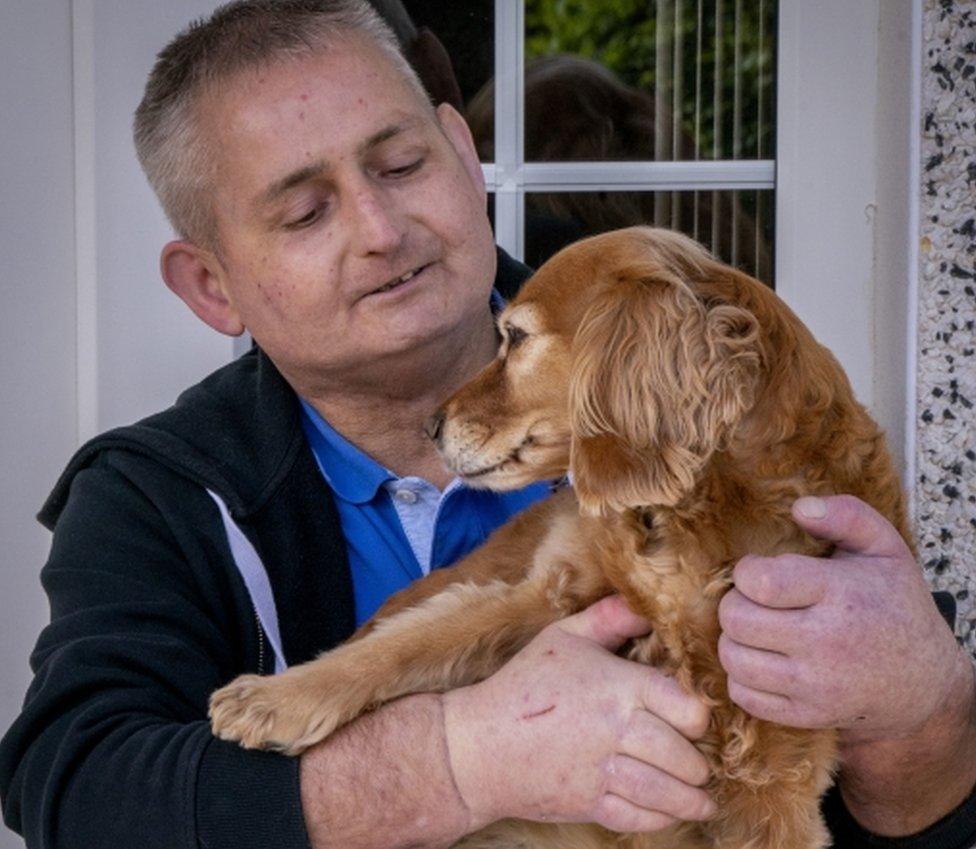
Steven can now hold his pet dog again
After further conversations with Prof Hart, Steven also spoke to Professor Simon Kay, a consultant plastic surgeon at Leeds Teaching Hospitals NHS Trust who led the UK's first double hand transplant operation in 2016.
Both outlined the risks involved.
"They were really understanding and really open about what might happen, that I could lose my hands altogether," he recalled. "They said it was unlikely but it was a risk.
"My wife and I spoke about it and came to the agreement to go for it. I could end up losing my hands anyway, so it was just a case of letting them know I was going to go with it."
Steven, who has three daughters aged 12, 24 and 27, had to undergo psychological evaluation to ensure he was prepared for the transplant.
'These hands are amazing'
He is believed to be the first person in the world with his condition to have the surgery. It involved a 30-strong team of professionals from many disciplines and was carried out in Leeds over a 12-hour period in December 2021 after a suitable donor was found.
"After the operation, I woke up and it was quite surreal," Steven said.
"These hands are amazing, everything has happened so quickly. From the moment I woke up from the operation I could move them."
After spending four weeks in Leeds General Infirmary following the operation, Steven now makes regular visits to hospitals in Glasgow for physiotherapy and monitoring.
Although dexterous tasks such as doing up buttons are still beyond him, his improving condition means he can do things like stroke his dog, turn on the tap and fill a glass of water.
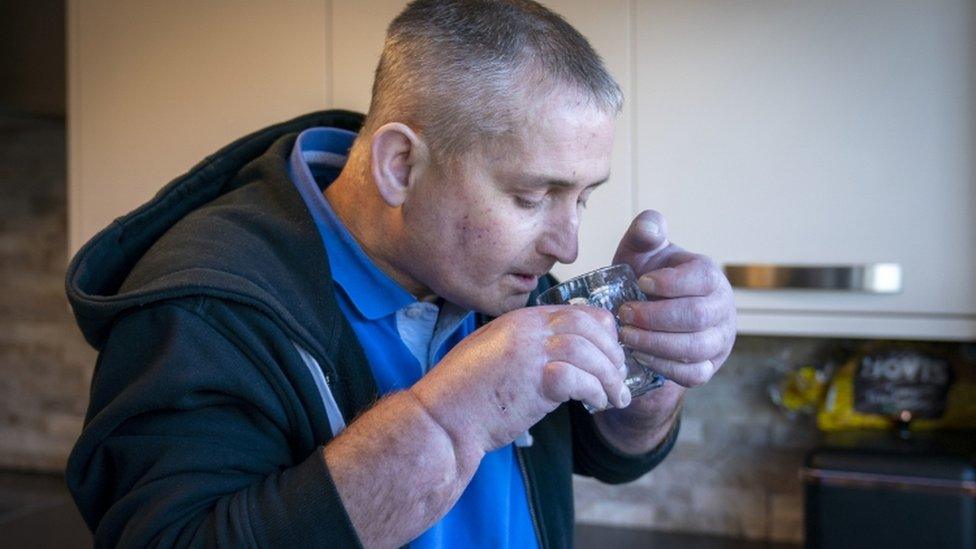
"It has given me a new lease of life," he added. "I'm still finding things hard just now but things are getting better every week with the physio and the occupational therapists. Everything is just slowly getting better.
"The pain is the big thing. Before the operation it was horrendous, I was on so much pain relief it was unbelievable, but now I've no pain at all."
Prof Kay said the operation had been a "huge team effort" and a hand transplant was "very different from a kidney or other organ transplant".
"Hands are something we see every day and we use them in so many ways," he explained.
"For this reason, we and our expert clinical psychologists assess and prepare patients, in order to be sure that they will be able to cope psychologically with the permanent reminder of their transplant, and the risk the body may reject the transplanted hands."
For Steven, the operation has been transformative. He now hopes to return to some kind of work once his hands have improved enough.
- Published26 May 2022
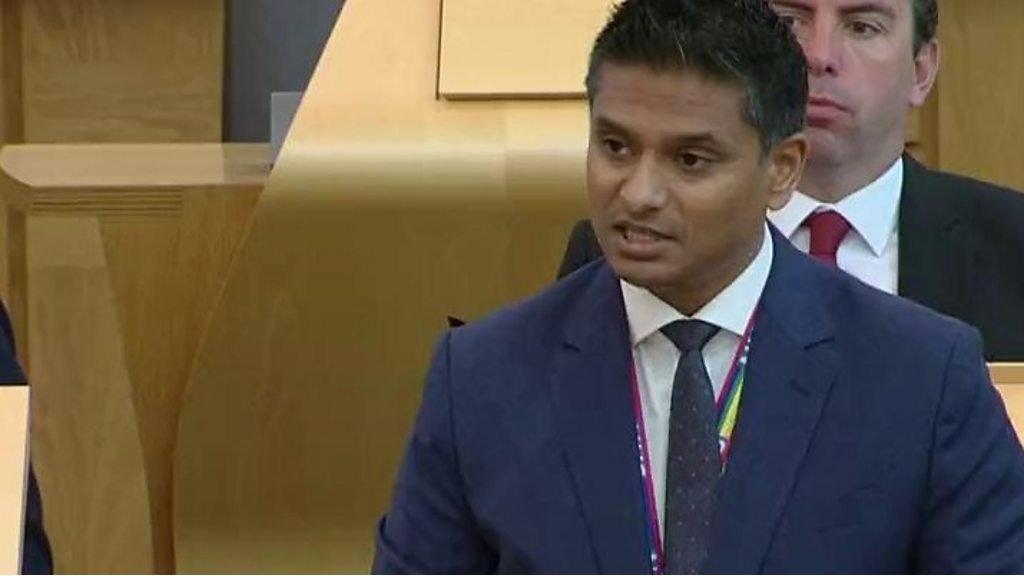
- Published7 October 2018
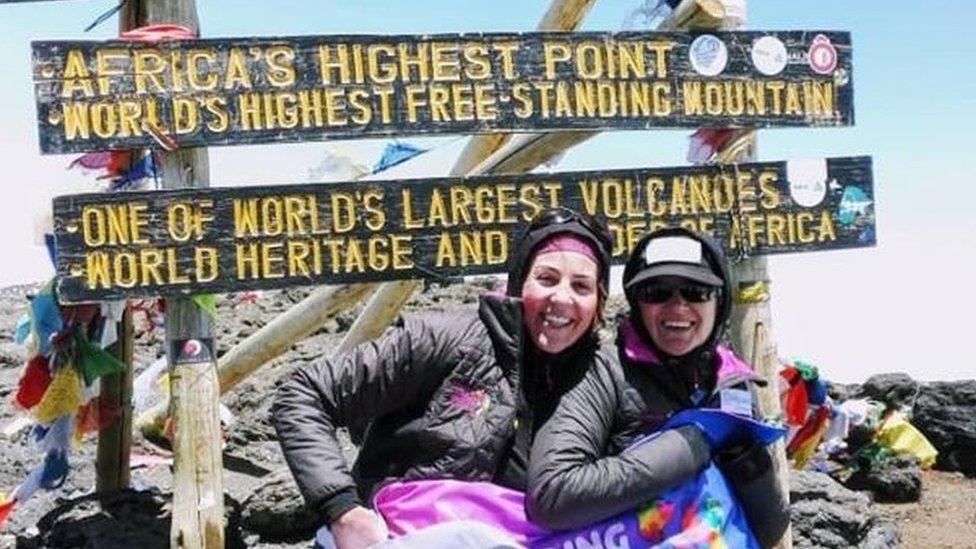
- Published25 June 2014
